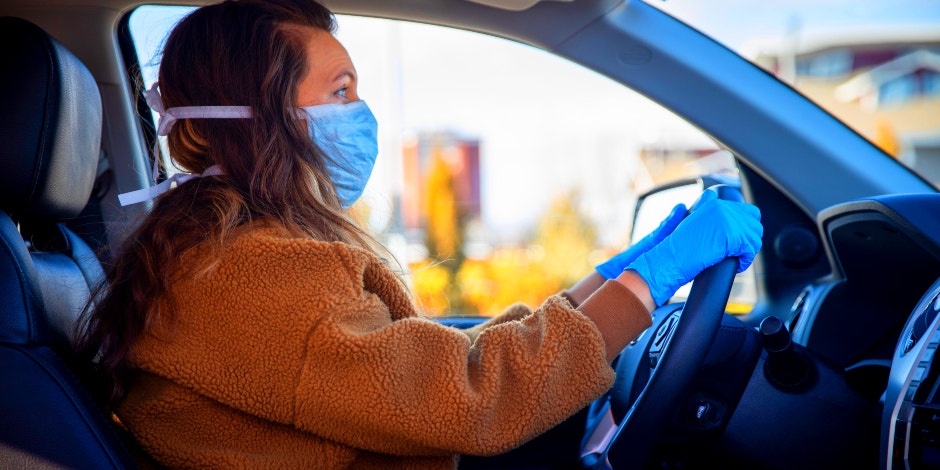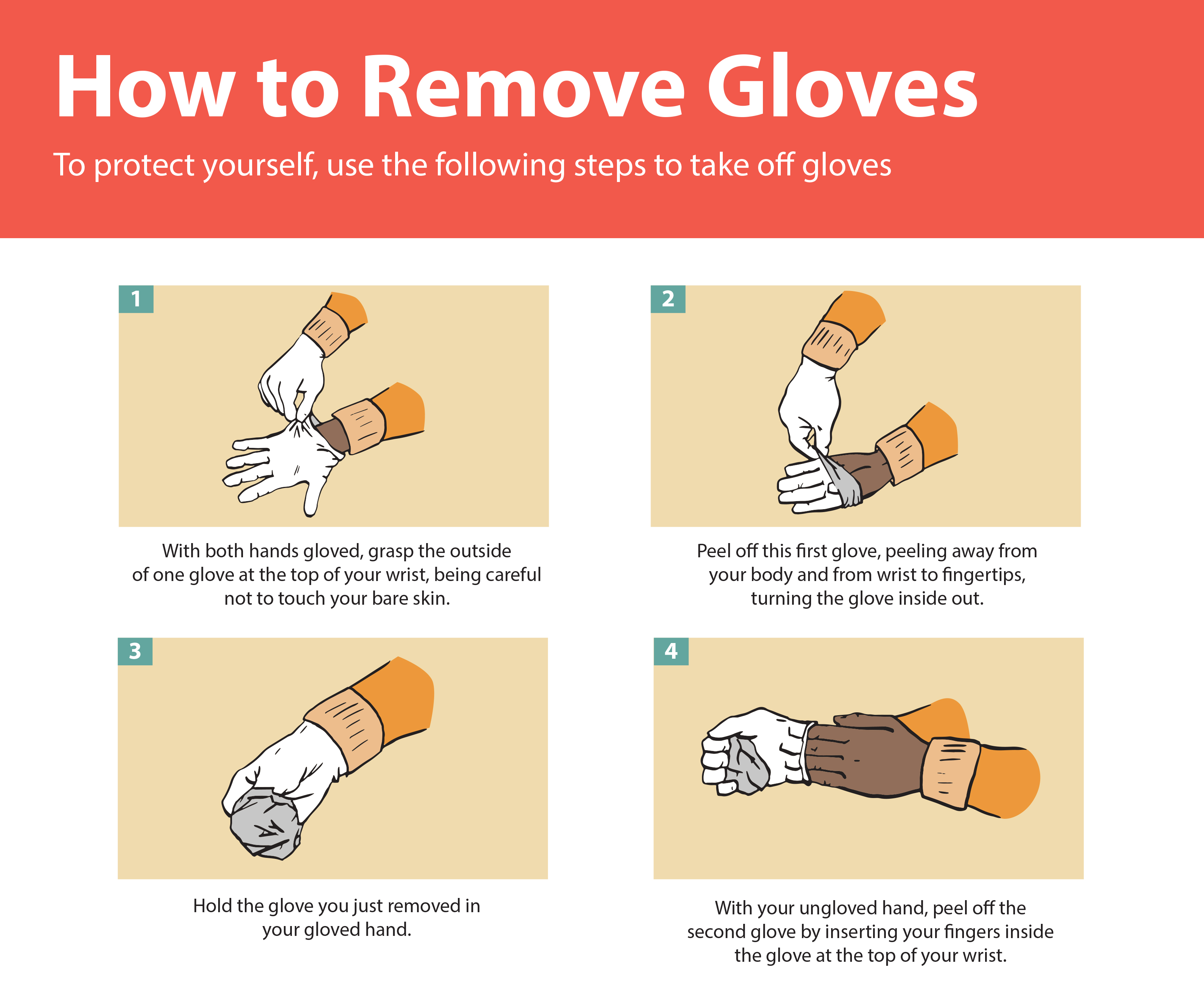Does Wearing Gloves Actually Spread Coronavirus?
Your protective gloves could be causing you more harm than good.
 getty
getty You can’t go outside without seeing someone using latex protections to cover their hands.
Last week, I stood in the fruit aisle, staring at a series of gloved hands feeling for the ripest mango. My change was handed back to me at the checkout by blue, rubber fingers. And the door to my building was held open for me a friendly neighbor whose face and hands were invisible behind his protective gear.
As I frantically scrubbed my bare hands, panicked by what germs I might have carried home, I wondered if I should invest in some protective gloves.
It also got me thinking: does wearing gloves spread coronavirus, rather than help prevent it?
These gloves continue to be sold out across pharmacies and grocery stores, yet the World Health Organization’s advice has remained unchanged since the earliest reports of coronavirus. Wash your hands, don’t touch your face, keep your distance.
Last month, a Michigan nurse went viral with a video illustrating just how easily gloves can cause cross-contamination. Molly Lixey stresses that the use of gloves doesn't protect someone any more than frequent handwashing, and exposes the dangers of relying on disposable gloves for protection against the virus.
While our fate continues to linger in the hands of the coronavirus, many experts are weighing in on how we can best protect ourselves when out in public. The guidelines regarding personal protection are changing all the time and it’s hard to keep up.
Most recently, the Centers for Disease Control and Prevention released advice that pushes Americans to wear cloth face coverings when they make essential trips to grocery stores and pharmacies for the foreseeable future.
But what about gloves? Governments and medical experts have been hesitant to push for the use of gloves, but why? Is this precaution as effective as a mask or is it causing more harm than good?
The problem lies in the misuse of gloves rather than the use of them. The gloves create a false sense of security, causing people to become complacent about their hygiene practices while wearing them.
If you were to go in public without gloves you’re probably armed with hand sanitizer and will wash your hands at the earliest opportunity. But when wearing gloves you might feel more protected than you are and become complacent about sanitation practices.
Dr. Mary E. Schmidt, a board-certified infectious disease specialist and associate professor of clinical medicine at Virginia Commonwealth University, reminds us that, “As soon as those gloves are contaminated, it’s just like having your [bare] hands.”
Meaning, once you touch one contaminated item with your gloves, they will be rendered useless. Failing to change gloves is the same as failing to wash your hands.
Equally, incorrect removal of gloves creates a huge risk for contamination. Many people touch the outside of their gloves while taking them off which means all the protection they may have given you is undone.
If you’re wearing gloves, you must be careful to remove them by peeling them off inside-out, ensuring the exterior of the gloves never touches your skin.
In response to the increase in the use of hand protection, the CDC has released guidelines on how to safely remove gloves.

Yet all the expert advice seems to agree on one crucial thing: gloves cannot be treated as a substitute for washing your hands!
Once people have gloves on, they cannot wash their hands, and this is perhaps why officials have been hesitant to recommend using them. You should wash your hands immediately after removing gloves.
So, should anyone be wearing gloves?
Of course, if you feel gloves help remind you to not touch your face and be aware of where your hands go, by all means, wear them. But regardless of what kind of protection you opt for, the same hygiene practices and social distancing rules still apply.
The FDA has warned that the demand for gloves among healthcare workers is not being met due to insufficient stock. With gloves in such short supply, you might want to consider keeping up with your regular hand-washing and leaving gloves for those who need them most.
According to the CDC, those who are caring for someone infected with COVID-19 should use gloves while cleaning surfaces and handling dishes or other items belonging to the infected person. People who require gloves should continue to disinfect surfaces, door handles, and objects they touch with gloved hands.
Gloves should also be disposed of immediately after use — and that does not mean throwing them on the sidewalk or in a parking lot after you leave the grocery store.
So, while gloves are not particularly useful in preventing the spread of the virus, the best way you can protect yourself and others is to practice strict hygiene routines, maintain social distancing rules, and wear a protective face mask in public at all times.
Alice Kelly is a writer with a passion for entertainment, lifestyle, and trending topics.

